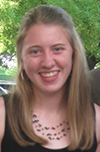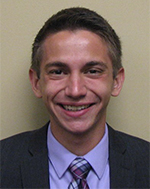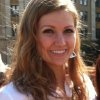In Van Andel Institute’s (VAI) research laboratories, scientists are constantly researching ways to improve human health and medicine. They examine cell reactions, cancer growth in rodents, and gene behavior. Their knowledge is vast and their work extensive and progressive.
But this world-class biomedical research and science education institute facility, set on a hill along Grand Rapids’ Medical Mile, is no top-secret lab. Alongside scientists in lab coats are teachers and students learning how it’s done, making efforts to get students thinking about real-life science. Their involvement is allowing knowledge, skills and the latest techniques in research to ripple out into local schools.
“They are using the same research skills as they would in a a job as a graduate student or biomedical professional,” said VAI Primary Investigator Bart Williams, whose children attend East Kentwood High school.

Through involvement with scientists, teachers are moving away from leading experiments in the classroom that end with a definite conclusion, opening the doors to the kind of research that poses a question and requires research with no guarantee of an answer. It’s student-led and young people learn about trial and error and that failure is very common in science, and often leads to more questions and possibilities.
At East Kentwood in AP Biology, students take techniques used at VAI back to the classroom, and students are taking what they learn further than to AP test day. Several have gone on to completing summer internships at the institute and are starting careers across the globe.
From Classroom to Lab
East Kentwood High School graduate Nicole Ethen has spent the past two summers at Van Andel Institute examining stem cells in mice, part of ongoing cancer research at the renowned facility. She is a junior studying neuroscience at the University of Michigan. “AP Biology introduced me to research and the concept that not every question has an available answer,” she said.
EK graduate Christian Cavacece spent this summer working on discovering protein interactions in plant hormones for use in pharmaceuticals. The junior at the University of Michigan is double majoring in Biochemistry and Middle Eastern Studies. He developed his passion for science in high school AP classes.

“I have never been more encouraged to not only succeed, but to go above and beyond what I had considered achieving. This ideal is something that I have taken with me into my research career and has been an invaluable asset since,” he said.
Julia Nguyen, who graduated from East Kentwood four years ago, completed an internship at VAI studying pointing behavior in canines, which is an innate behavior in certain breeds of hunting dogs to freeze and aim their muzzle at game. She identified one likely ancestral set of DNA variations on Chromosome 24 that was shared by many pointing breeds.
Nguyen graduated in May from Harvard University with a degree in neurobiology and a secondary one in mind, brain and behavior. She is working in the Petreanu Lab at the Centre for the Unknown in Lisbon, Portugal.

Exposing Students to Science
Just a block away from the research facility at the nonprofit Van Andel Education Institute, students as young as 6 years old are interacting with scientists and educators through several programs.
Former East Grand Rapids AP Chemistry and Biology teacher Janyce Huff now works as a science education specialist at Van Andel Education Institute’s Science Academy. The education space is filled with animal habitats with fish, bearded dragons and other reptiles. White boards display step-by-step processes children have used during their projects.
The goal of the academy is to get students on the pathway toward science careers from a young age, she said. The Out-of-School Time Cohort Program offers about 20 students per cohort to spend three years, from fourth to sixth grade, studying how health depends on biodiversity. By the third year, students are creating and leading experiments on their own. Tuition is underwritten by Van Andel Institute.
Huff said the hands-on learning ties in with Common Core learning standards, the national set of academic goals.

Science on Saturday pairs adults and students in first through eighth grade to experience “Thinking and Acting Like a Scientist” with each grade level exploring different types of plant and animal interactions.
Professional development, classes and research are also offered to teachers through programs at Kent ISD and directly through VAI.
CONNECT








